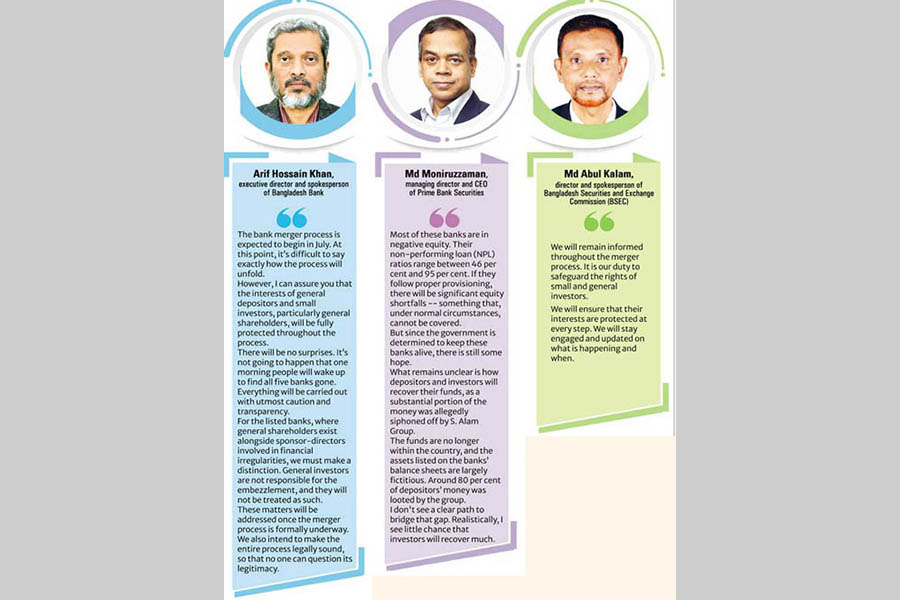
Published :
Updated :

The Bangladesh Bank is set to merge five Shariah-based banks into a single entity in an effort to revive their financial health from the ashes.
As the banks are publicly listed, the question is how the interest of shareholders, except for sponsor directors, who are blamed for the financial institutions' present liquidity crisis, will be protected.
The banks are First Security Islami Bank, Social Islami Bank, Union Bank, Global Islami Bank, and Exim Bank. As much as 76.7 per cent of the loans disbursed by these banks have become non-performing, according to the central bank data, which pushed them to the brink of bankruptcy.
So, when the banks are struggling to pay back depositors, investors worry over the fate of their investments.
Currently, the general public, institutions, and foreigners together hold between 45.51 per cent and 94.1 per cent stakes in these banks. Their total assets in these banks are worth Tk 16 billion, according to the Dhaka Stock Exchange (DSE).
Earlier, BB Governor Ahsan H Mansur assured depositors that their funds would remain safe during the transition.
"The central bank is not for sponsor-directors who destroyed the banking sector. There is no sympathy towards them in any decision to streamline the sector," said the governor.
The process of merger will start next month.
The BB will take the ownership of these banks. A bridge bank will be formed to keep the banking operations running under the control of the government.
The government ownership will be temporary, with shares eventually transferred to the public and international strategic investors once the banks are reorganised. The whole process is expected to take about three years.
To avoid legal troubles, the Bank Resolution Ordinance-2025 was enacted in May. The new ordinance gave extensive power to the BB for mergers and acquisitions.
To assess these banks' financial health, the central bank engaged global auditors -- Ernst & Young (EY) and KPMG -- in February this year, with funding from the Asian Development Bank (ADB). The audit is intended to boost transparency and accountability in the sector.
The Financial Express talked to experts, who are closely watching the merger process unfold, to learn about the possibilities that investors may face.
Four of the banks had been under the control of the controversial S Alam Group until August 5 last
year while Exim Bank had been managed by Nazrul Islam Mazumder, founder of Nassa Group.
They had reportedly changed critical banking policies in favour of their businesses and taken loans bypassing the rules and regulations using political clout.
babulfexpress@gmail.com
farhan.fardaus@gmail.com


 For all latest news, follow The Financial Express Google News channel.
For all latest news, follow The Financial Express Google News channel.